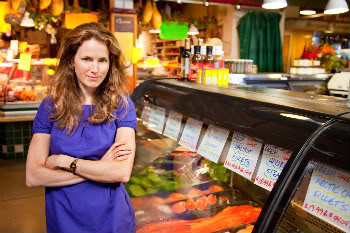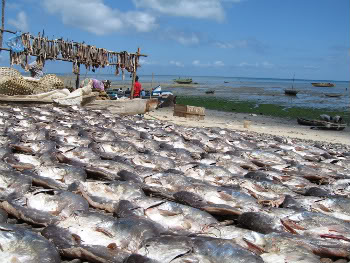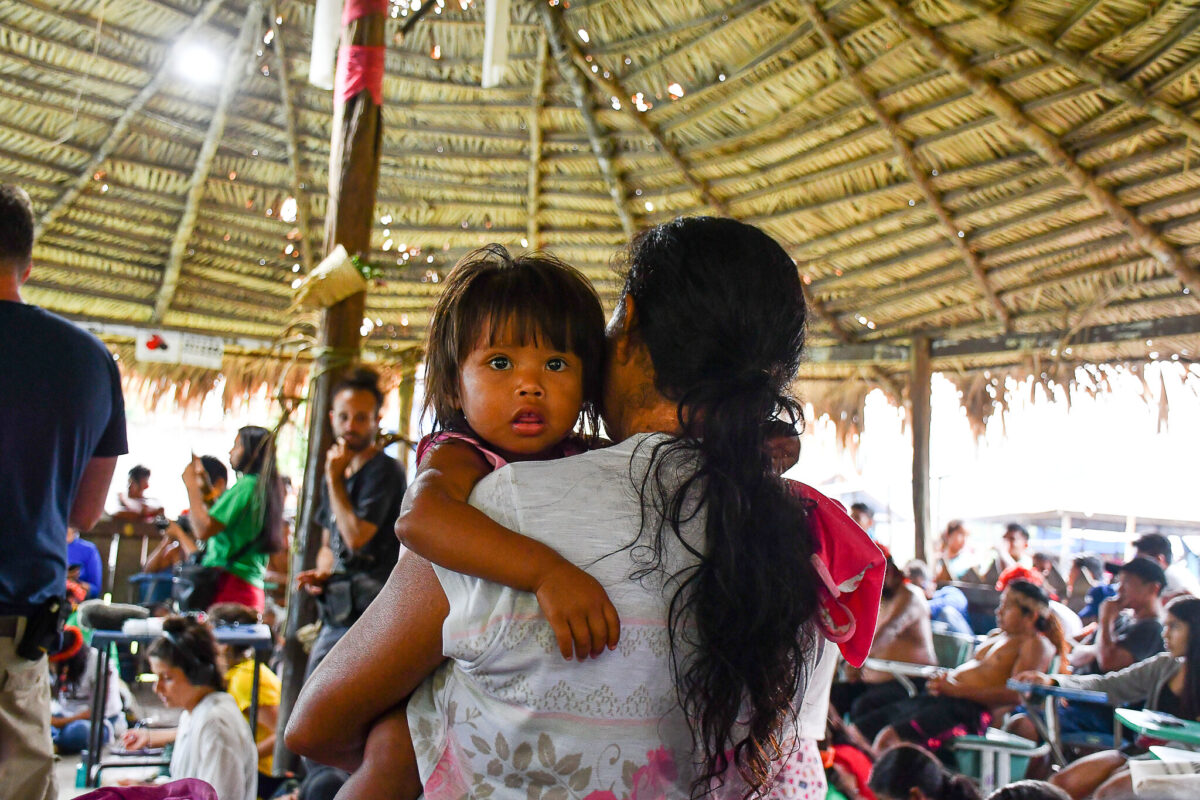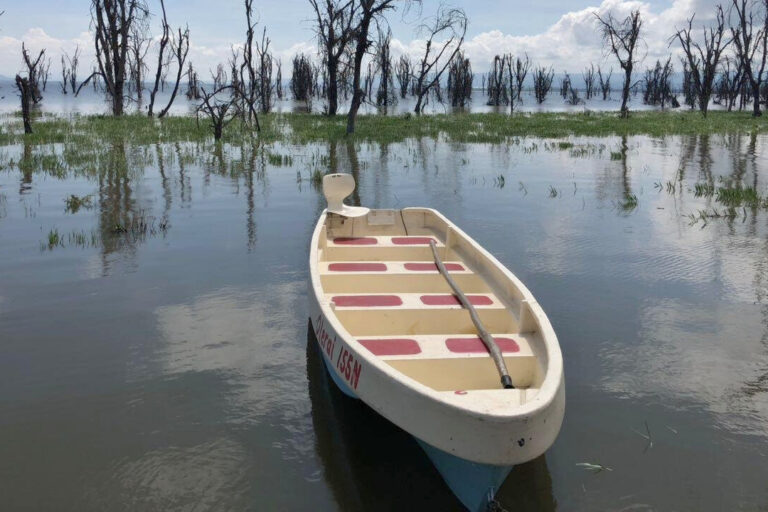In April marine scientist Jennifer Jacquet made the case on her blog Guilty Planet that people should abstain from eating seafood to help save life in the ocean. With fish populations collapsing worldwide and scientists sounding warnings that ocean ecosystems—as edible resources—have only decades left, it is perhaps surprising that Jacquet’s call to abstain from consuming seafood is a lone voice in the wilderness, but thus far few have called for seafood lovers to abstain.
Mongabay.com sought out Jacquet to comment on her unique—and brave—position and discuss the many implications—environmental, ethical, and social—of eating seafood.
“I do not believe that all people should give up eating seafood. But I believe that people for whom seafood is a luxury product should consider abstaining, particularly if it is not too much of a sacrifice,” Jacquet said. “I certainly believe there should be a conservation group out there advocating this position, too, because fish need a wider spectrum of voices. Currently, almost every campaign relates to fish and invertebrates as commodities rather than wildlife.”
 Jennifer Jacquet, pictured here at the Granville Island fish market in Vancouver, has challenged the public to consider the many ramifications of eating seafood. Photo by Sherman Lai. |
In her blog Jacquet points out that she has colleagues who admit to her they love eating seafood as much as they love studying it. When asked whether such scientists have a greater responsibility to forgo seafood, Jacquet responded simply, “I believe that with the privilege of education comes the responsibility to act.”
One reason why educated consumers—and marine scientists—may feel guilt-free when consuming seafood is by only buying ‘sustainable’ seafood. However Jacquet believes that a lack of transparency in the fishing industry makes all seafood suspect, no matter the labels attached.
“I think it is nearly impossible for a fisheries scientist, let alone the average consumer, to assess sustainability in the current climate, which encourages lots of overfishing and cheating,” she explains. “When asked about what to eat, I encourage people to eat as low on the food web as possible both in the terrestrial and the marine environment—minus shrimp!”
There has been plenty of debate around the ethics of eating cattle, pigs, and chicken, but seafood remains largely absent from such discussions—a topic Jacquet took up in her second blog entry on consuming seafood. She says that the major difficulty has been to convince people fish are more than just an edible resource.
 Fish drying on Mafia Island, Tanzania. Jacquet believes that people who rely on fish for food security should be given priority over those who consume it as a luxury item. Photo by: Richard Wollocombe. |
“It is difficult,” Jacquet admits. “We were able to achieve this with whales because they are mammals that nurse their young, communicate with one another, and exhibit high levels of intelligence. Fish are, for the most part, cold-blooded, expressionless creatures. But, in some ways, they are not that different from birds and, as anyone who has ever been to England knows, there is no shortage of sentiment for avian species. Fish often travel in flocks and flash beautiful colors. Like the albatross, tunas cover remarkable migratory distances. Like an eagle, an octopus can also build an impressive home. Like many macaws, the Moorish idol, too, chooses a mate for life.”
That may be so, seafood-lovers protest, but fish and seafood is good for you, isn’t it? Maybe not. Jacquet explains that the ‘healthy’ aspects of seafood are not as cut-and-dry as we believe and have largely been propagated by the fishing industry.
“I think if we look closely, the medical community is not really pushing us to eat fish. Really, government health agencies and the fishing lobby are the ones encouraging fish consumption,” Jacquet says. “Several medical studies came out this year affirming that, at best, fish oils are just one factor of many that may reduce health ailments, such as heart disease. The medical researchers found that people who do not eat fish, such as vegetarians, are not at any greater risk of illness.”
Finally, it’s not just the fish who suffer. Consuming seafood can have large-scale social implications as well.
“Everyone in the developed world needs to realize that their fish is increasingly being sourced from the waters around developing nations, which is like the Robin Hood parable in reverse—we are stealing fish from the poor to give to the rich,” she says.
Jacquet is a researcher with the Sea Around Us Project at UBC Fisheries Center. She does not eat seafood.
Related articles
(09/08/2008) Fish stocks are declining globally. While the consumer in the industrial world has yet to feel the full impact of this decline, those in the developing world know it well. Local small-scale fishermen are catching less fish to feed growing populations. Jennifer Jacquet of the Sea Around Us Project believes the hope for sustainable seafood lies in these very fisheries.
The long-ignored ocean emergency and what can be done to address it
(08/18/2008) This year has been full of bad news regarding marine ecosystems: one-third of coral species threatened with extinction, dead-zones spread to 415 sites, half of U.S. reefs in fair or bad condition, increase in ocean acidification, tuna and shark populations collapsing, and only four percent of ocean considered pristine. Jeremy Jackson, director of the Scripps Center for Marine Biodiversity and Conservation at the University of California, San Diego, synthesizes such reports and others into a new paper, published in the journal Proceedings of the Naional Academy of Sciences, that boldly lays out the scope of the oceanic emergency and what urgently needs to be done.
(07/10/2008) After a week of bad news regarding marine life–it was reported that half of U.S. coral reefs are in fair to poor condition and one-third of all coral species are threatened globally–there is still more: a study of twenty tropical islands showed that recreational and subsistence fishing has gone almost completely unreported from 1950 to 2004. In fifteen of twenty cases the fish take was at least doubled when local fish catches were added, and in the most extreme case, American Samoa, the amount of fish collected was 17 times what was previously recorded.














